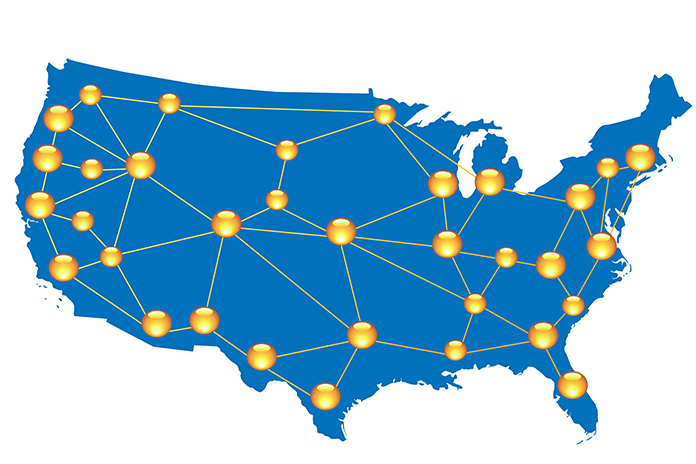The most foolproof plan for preventing or avoiding divorce has been discovered by Millennials: Don’t get married. When your elders are leading what is known as the Gray Divorce Revolution, your generation’s attitude towards the institution may be just the slightest bit affected. Does this mean that Millennials aren’t falling in love? Does it mean that nesting instincts aren’t being followed or long-term relationships being formed? Of course it doesn’t. Unions are forged. Break-ups are inevitable. So, the discussion continues even if the terms have been redefined. Marriage remains an option. Thus, so does divorce. The only conclusion the rest of us must come to is that Millennials face the same trials as any other generation. What’s most important to remember is that there are more of them than from any other generation. In other words, they’re here to stay. Let’s get to know them.
Millennials Like to Lease
If you don’t sign a marriage license, you won’t have to sign divorce papers. What about a lease, though? Millennials may be slow to marry but they haven’t done anything to slow down the rate of unmarried cohabitation. Quite simply, it’s not that Millennials want a way out of contracts. It’s more that they don’t see anything wrong with the fact that contracts end. Parallels between ownership and the American dream are no longer being made like they used to be in previous generations. America is being called out on one of its mottos: “Built to last.” Millennials have seen enough “built to last” marriages end in divorce. Absolving marriage from its obligation to “last” actually destigmatizes divorce. In that case, avoiding a mortgage also means dodging debt and foreclosure.
Millennials Move around a Lot
Another trait associated with Millennials is that they are travelers. They move around a lot. As you know, both marriage and divorce have immediate ties to location. A license is issued by the town or city that the marriage occurs in. Divorce law depends on the state you live in. Once you delve into the regional and cultural differences regarding marriage, where you choose to settle down at any given point in your life will have an effect on how you meet your future partner and even when you eventually marry. People simply marry earlier in some areas. Early marriage is statistically tied to early divorce. As relationships fall apart, people feel the need to move on in more ways than one. After a divorce, moving is already common, not just among Millennials. All you can do to get a bearing on the norms and laws regulating divorce is to consult with a family law attorney practicing in that state.
Millennials Are Redefining Marriage
If Millennials are redefining marriage, then it goes without saying that they are redefining divorce. Despite the generation’s well-known reluctance towards marriage, it is a mistake to think that they have rejected marriage wholesale. Instead, they have addressed the concept on their own terms, with their own terms. Permanence and ownership may make Millennials sweat a little but their affinity for leasing or renting, not to mention their propensity for moving around, seem to correlate with their redefining of marriage. After all, we are talking about a generation that is currently choosing partners by “swiping left” or “swiping right”. Their most significant contribution to the intergenerational conversation has been…Beta marriages!
A Beta marriage refers to beta testing, which is the trial period before a company commits to a product. For the tech-savvy Millennials, it is what apps and video games undergo before being released to the public. With the Beta marriage, what they’re saying is that before they “make it official”, they want to know their options. Sure, you’re thinking that there is but one option in marriage and it involves death being the only way out. Meanwhile, divorce is not an option in marriage. It’s a way out. What Millennials have proposed are multiple modes of marriage.
Millennial Modes of Marriage
In 2014, the USA Network conducted a survey as part of their marketing campaign for a steamy new television show about marriage. Here are the new marriage models they were asked to respond to:
- Presidential: Marriage vows last for four years. After eight, you can elect to choose a new partner.
- Beta: This is the aforementioned Beta marriage. A trial period of two years is standard.
- Till Death Do Us Part: For the Millennials who wish to keep this tradition, they have a rather hardcore solution: Make divorce illegal.
- Multiple Partner: Call it polyamory. Call it polygamy. Call it what you will. The concept has leapt from alternative lifestyle to an option on dating websites to a model for Millennial marriages. It is very pragmatic, as well. The model calls for multiple partners to meet multiple needs.
- Real Estate: If you’re going to talk to a Millennial about a mortgage, that’s a whole other conversation. Yet, it seems they’ve had the conversation and borrowed an aspect for one of their marriage models. What if marriage licenses could be granted on 5, 7, 10 and 30 year terms? After the term is up, the marriage is renegotiated.
A marriage can end and still be successful. That is a radical, new thought. We have Millennials to thank for it. If they’ve taught us anything, perhaps it is to recognize when tradition is no longer viable and has become a liability. Millennials are not saying they wish to eschew tradition all together. They recognize that marriage will always be risky. Rather than remove the risk, they have chosen to rethink the results.




